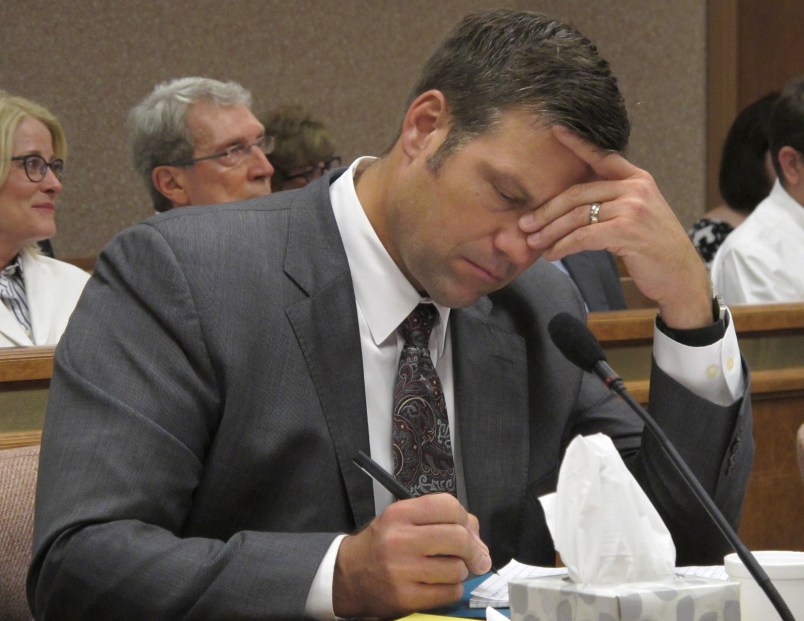The Supreme Court put the final nail in the coffin of Kansas’ proof of citizenship voter registration requirement, which had been championed by former Kansas Secretary of State Kris Kobach.
The court said Monday it would not be taking up a case reviewing the 2013 law, which had been struck down by both trial and appeals courts.
The order, which said only that Justice Neil Gorsuch did not participate in the consideration of the case, brings to an end the multi-front legal war over the requirement. A few other states have similar requirements on their books, but have either not tried to implement them or run into headwinds in court.
The lower courts said that the Kansas requirement, which stood to disenfranchise some 30,000 Kansans who lacked documentation of their citizenship, was both unconstitutional and a violation of the National Voter Registration Act.
Kobach had gone to great lengths to try to implement it.
Once a court had halted the requirement for federal elections, Kansas attempted to impose it just for state-level elections — a move that was also blocked in court. Meanwhile, Kobach successfully sought approval from the U.S. Election Assistance Commission to change the federal registration form to include the mandate. Kobach only got the approval once one of his former Kansas associates was made the EAC’s executive director. The official approved the change without getting the full commission’s okay, and it was likewise blocked in court.
Kobach then pitched the incoming Trump administration on changing the National Voter Registration Act so that the requirement would have a better chance of withstanding legal challenge. His efforts to obscure that lobbying campaign earned him a sanction from a judge for “deceptive conduct and lack of candor.”
Kobach led the team that sought to defend the law at the 2018 trial, during which he struggled with the basics of trial procedures. Despite the rockiness of those proceedings, he expressed confidence that the law would ultimately be upheld either at the appellate or the Supreme Court level.
After Kobach left the secretary of state’s office, his successor Scott Schwab took a less aggressive approach to restricting the right to vote. But the state still sought to appeal to the Supreme Court the April 10th Circuit decision backing the trial judge’s ruling.
Schwab’s office did not immediately respond to TPM’s request for comment. Dale Ho, the ACLU attorney who led the challenge to the law, said in a statement that the Supreme Court’s move Monday “will finally close this chapter on Kris Kobach’s sorry legacy of voter suppression.”



